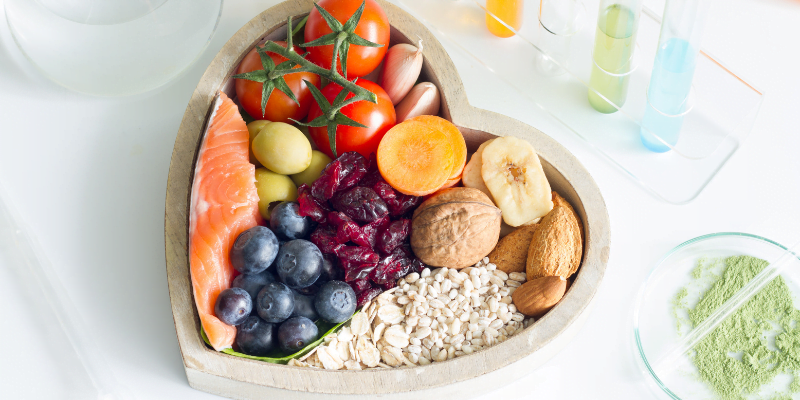Food Morality is a concept that I have only recently come across. When introduced to me by a friend who was participating in one of my 6-week challenges, I was instantly curious. Looking into it more, I have discovered that food morality is quite prevalent in our society today. Breaking it down simply, food morality is categorising food into good vs bad food. We hear it often enough, in fact, it has become quite common in our everyday speech. Examples of utilising food morality are: “I was naughty/bad today, I ate …”; “I’m being good today”, etc. We even see it in food products’ marketing, e.g. “guilt-free chocolate”. All of these and more contribute to a society that is shrouded in food morality. Why is this not helpful?
Morality, by definition, are principles of right and wrong, which we can extrapolate to include good and bad. When we use morality in terms of food, we are suggesting that there are ‘right/good’ and ‘wrong/bad’ foods to eat, this implies a judgement is being made about the inherent quality of the food. When we use judgement in this critical way of dividing food into two categories with no room for any grey in the middle, we can evoke feelings of shame and guilt in people. Furthermore, it makes assumptions about every body that consumes food.
Categorising food as ‘good’ or ‘bad’ assumes that we all are on the same page about what is beneficial for our bodies. It implies that all our bodies need the same nutrients, that we have the same amount of funds to dedicate to these foods that we all need, and that we all agree on what ‘healthy’ looks like. This is simply not true. Unfortunately, we are not all on the same level. Some of us don’t have the money that is required to constantly and consistently buy the ‘good’ food, whether that be because we are struggling students, or parents supporting children/the elderly/pets, or because we only earn enough to get us through the day and week on the bare minimum, or whatever else the case may be. Our bodies are so diverse that what is good for one person is not necessarily what is good for another. For example, fish is supposed to be good for you, but not for a pregnant person, does this make fish bad? No. I am coeliac, gluten and any traces of it are quite detrimental for my body, this includes food like bread, pasta, cereals, grains, etc. Does that make these foods bad? No. Our bodies vary a great deal person to person and even from time to time. I used to be able to eat gluten but now I cannot, maybe one day I can again. I even have friends who have found that certain vegetables and fruits are not good for their bodies. Sometimes it’s because of the acidity in their body, or because the chemicals in the food react badly with their digestive system. Therefore, we are not all on the same level about what nutrients in food are good for us collectively. And lastly, we don’t all share the same opinion of what ‘healthy’ looks like. Some people might believe that being healthy is looking skinny and having a low percentage of fat on the body. Others might believe that healthy is being able to get through your day with enough energy regardless of what the scales say. Some people focus on their weight as an indication of their healthiness, others like to compare the percentage of body fat, muscle mass, and body water. Yet again, others might judge their healthiness on the size of their clothing and whether they can still fit into that outfit they wore ten years ago. There are so many perspectives on what ‘healthy’ can mean to someone. Categorising food as ‘good’ or ‘bad’ does not give an accurate picture of those who inhabit our society, that is, you and me, our friends, families, and neighbours.
Using food morality, that is the ‘good food’ vs ‘bad food’ mentality, can invoke feelings of shame and guilt within us. When we label certain foods as ‘good’ or ‘bad’ we unconsciously believe that that food is inherently ‘good’ or bad’. When we eat that food, we tend to take on the quality we have appropriated to it, in this case we become what we eat: ‘good’ or ‘bad’. Shame is an emotion that is felt when we embody the feeling that we are bad. Guilt is the feeling that arises when we do something bad. Guilt can be helpful for us as it encourages to make amends and rectify a situation. However, when it comes to food, I’m not so sure it is that easy. When we feel guilty about something it is usually because we have caused offense in some way. If we feel guilty about the food we are eating, who have we caused offense to? Perhaps, our bodies? Okay, let’s go with that. How do we know we’ve caused offense to our bodies? Did we get stomach pains? Become constipated or get diarrhoea? Did we vomit, pass gas, get reflux? Sometimes, yes. I know that if I eat gluten, I will get severe stomach pains and the toilet will become my best friend for the next couple of hours. In that sense, I have caused offense to my body, I feel guilty, and I assure myself that I will be more careful in the future to take care of my body by watching what I eat. However, if I eat chocolate, cake (gluten free of course), ice-cream, etc. foods that are deemed to be ‘bad’ and I get none of the symptoms mentioned above, am I offending body? I say no. In a society that uses food morality rampantly, I would likely feel shame. I might think that I am bad by eating this food. This could start a vicious cycle. I feel bad because I ate this bad food and so I eat more bad food for comfort and that makes me feel worse and so I eat another piece of bad food because, well, I’ve already started and I’m already a bad person when it comes to food, so why stop? And so on and so forth. It’s a hard cycle to stop. Shame is not a helpful emotion. It is very easy to spiral downwards when we feel shame and it is very hard to come out of. So, what can we do to change this way of being that makes us feel guilty and ashamed?
My proposition for how to combat food morality within our society is relatively simple. The first step is to become aware. Just notice if we are using food morality with ourselves or with others, in the way we think about food, to the way we talk about food, to the way we make decisions about what food to buy and eat. No need to do anything more than just notice that that is what we are doing or what we are not doing. The second step is to reflect. Is this way of thinking something I want to change? If yes, what do I want to change it to? How would that look like? What strategies could I use that would help me to begin changing this way of thinking? If no, what do I like about this way of thinking? What works for me by thinking this way? Is it a helpful way of thinking for me? How do I know this? The third step is to act. Put into practice the strategies we have reflected on or continue going as we have been. Then repeat. Notice again, reflect again, act again. And repeat.
Food morality may be a concept that needs to change in society. I can see the damage it has done to my friends and family, to my participants, and even to myself. Some days I am more active about combatting it with the way I think and speak about food and others I’m not as on top of it. You may think that it is something that needs to change in society, too. Or you may not. Whatever you decide, that opinion and perspective is yours alone and what you do with it is your choice and no one else’s not even mine. I’m just happy to share my thoughts and knowledge in order to expand our awareness of ourselves, others and the world we live in.

